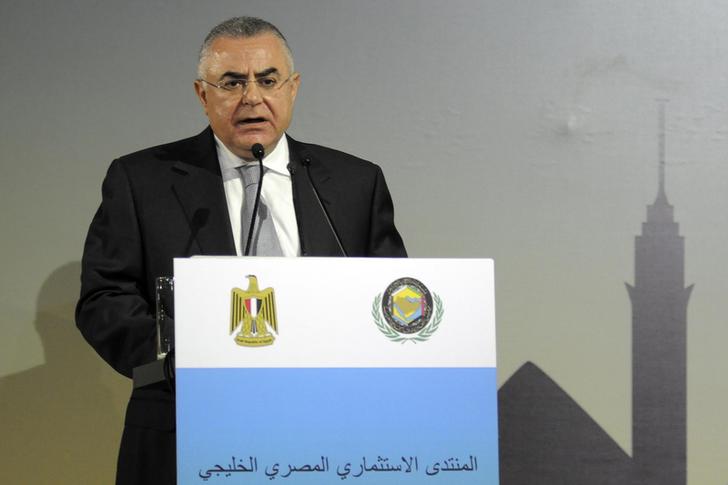Latest NEWS
- Aswat Masriya, the last word
- Roundup of Egypt's press headlines on March 15, 2017
- Roundup of Egypt's press headlines on March 14, 2017
- Former Egyptian President Hosni Mubarak to be released: lawyer
- Roundup of Egypt's press headlines on March 13, 2017
- Egypt's capital set to grow by half a million in 2017
- Egypt's wheat reserves to double with start of harvest -supply min
- Roundup of Egypt's press headlines on March 12, 2017
CBE's governors starts an open-ended leave 2 weeks ahead of leaving office

CAIRO, Nov. 12 (Aswat Masriya) - Central Bank Governor Hisham Ramez announced that he will be on an open annual leave two weeks before his term ends, in a move that coincided with the CBE's appreciation of the pound against the dollar by 20 piastres Wednesday, said banking sources.
Ramez delegated his tasks to his deputy Gamal Negm until the expiration of the board of directors' term by the end of November.
The CBE raised the Egyptian pound Wednesday to EGP 7.73 against the dollar instead of EGP 7.93 per dollar, in a move contrary to Ramez's policies since he took office in February 2013.
Since the beginning of the year, Ramez depreciated the Egyptian pound by 80 piasters, taking the currency's decline to the year to 11 percent.
Last month he tendered his resignation on the same day President Abdel Fattah al-Sisi assigned the former head of the National Bank of Egypt Tarek Amer to take the position for four years.
According to sources, the CBE's board of directors were scheduled to meet next week but Ramez requested the meeting to be held on Tuesday when he announced his decision to go on leave.
The sources justified Ramez's move as a way to distance himself from any decisions issued by the CBE until his term officially ends.
The CBE's surprise move to raise the value of the pound came at a time when analysts projected a further depreciation of the pound especially with the decline in Egypt's foreign reserves, which has been further exacerbated in the aftermath of the Russian plane crash on Oct. 31.
The Egyptian pound was projected to change hands at between 8.20 and 8.25 to the dollar by the end of 2015, according to analysts.
Mohammed Al Sewidi, chairman of the Industries Federation said on Monday that Amer "promised to provide $4 billion over the next two weeks .. and did not announce the sources providing these funds." The money will pay for previous import contracts that has been stalled since the CBE imposed restrictions on cash deposits in US dollars last February.
Years of political turmoil led to a drop by more than a half of Egypt's foreign reserves in the years following the popular uprising in January 2011, which ended the rule of president Hosni Mubarak. The instability that ensued has taken a toll on tourism, which was previously one of the main sources of foreign currency for Egypt.










